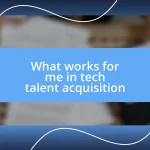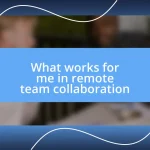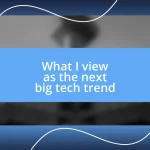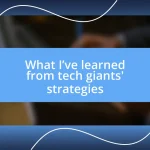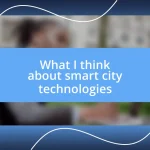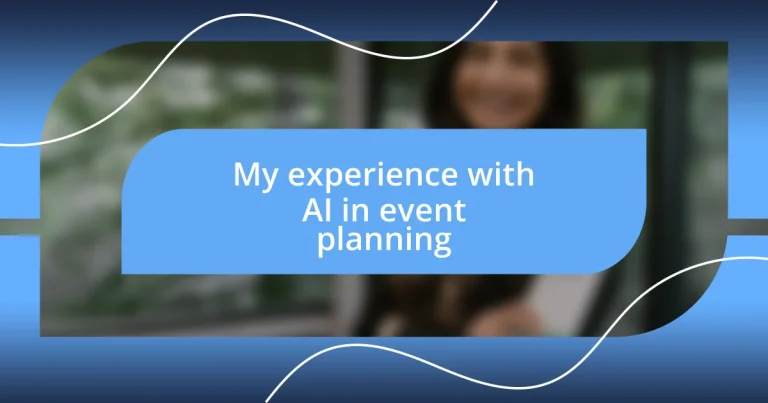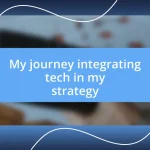Key takeaways:
- AI significantly enhances efficiency in event planning by automating repetitive tasks and providing data-driven insights for better decision-making.
- Personalization through AI, such as tailored agendas and marketing efforts, fosters deeper connections between organizers and attendees, leading to increased engagement and satisfaction.
- Challenges in implementing AI include initial team resistance, a steep learning curve, and data security concerns, which need to be navigated carefully for successful integration.
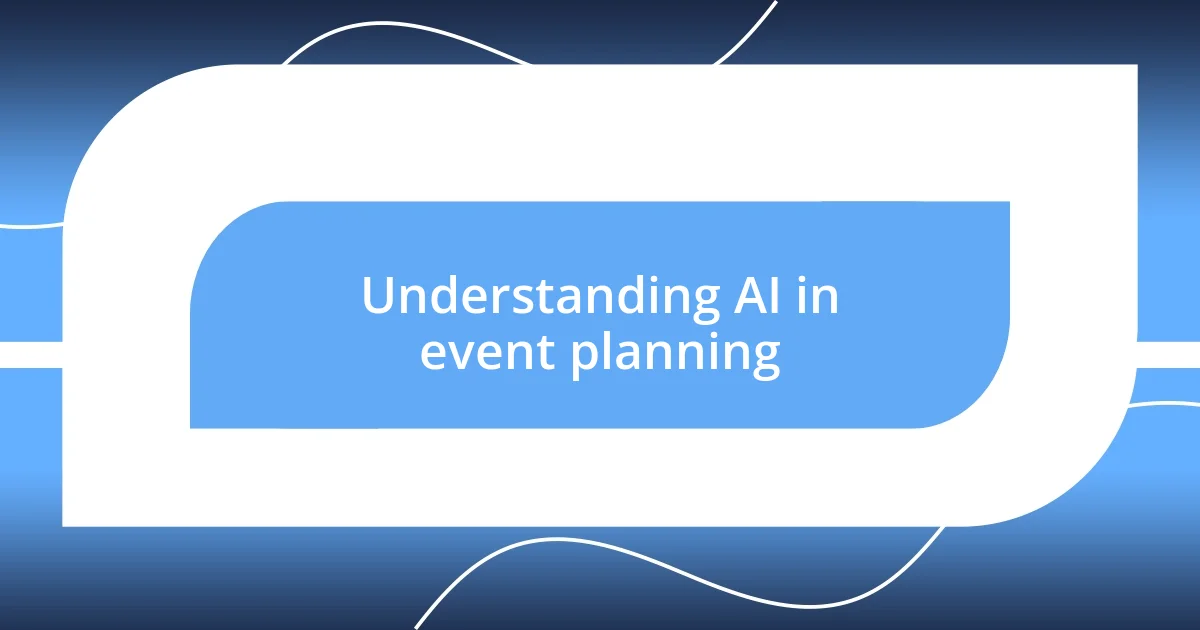
Understanding AI in event planning
AI is transforming event planning in incredible ways. When I first started using AI tools, I was amazed at how much time was saved on repetitive tasks like scheduling and sending invitations. It felt like having a personal assistant that never tired! Have you ever experienced the stress of coordinating details for a big event? I sure have, and AI can alleviate a lot of that pressure.
One of the most fascinating aspects of AI in this field is its ability to analyze data and predict trends. I remember planning a corporate event last year where AI helped me identify the best venue based on previous attendee behavior. It wasn’t just about choosing a pretty space; it was about aligning the atmosphere with the preferences of our guests. This data-driven approach made me feel confident in my decisions, which is something every planner longs for.
Moreover, AI chatbots are a game-changer for real-time engagement during events. I implemented a chatbot for a recent conference and found that it not only answered questions but created a lively interaction with attendees. It was thrilling to watch participants engage in exchanges that felt personal, even with a digital entity. Isn’t it fascinating how technology can bridge gaps and make events more interactive?
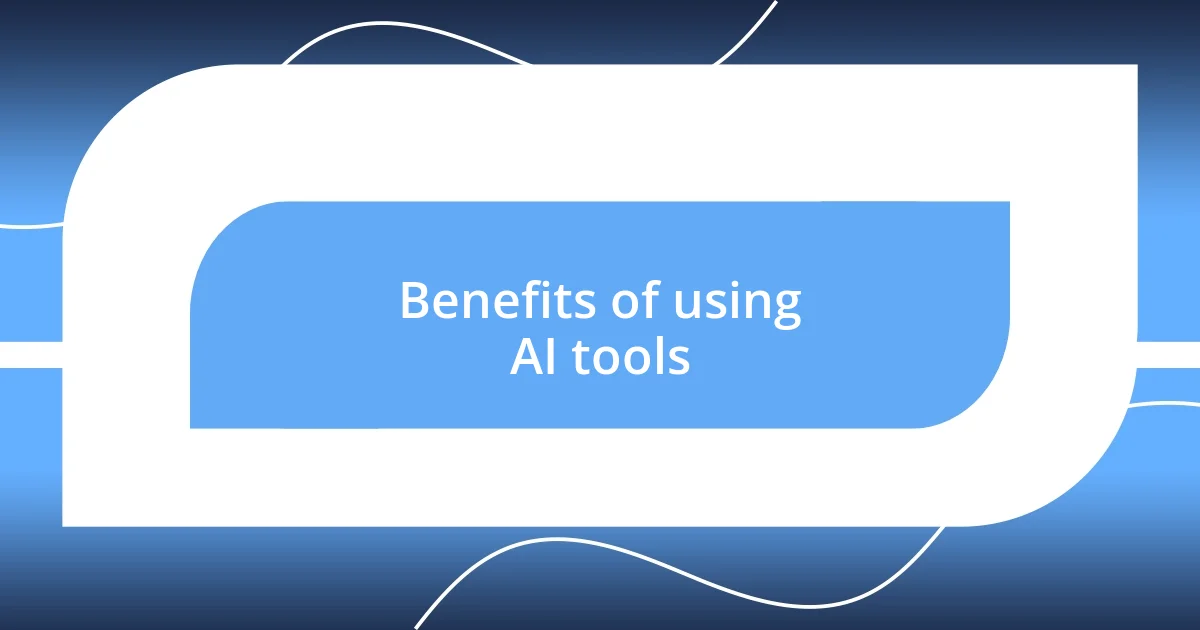
Benefits of using AI tools
Using AI tools has revolutionized the way I manage events, especially when it comes to maximizing efficiency. Just last month, I used an AI scheduling tool that found the optimal time for a meeting based on everyone’s availability without the back-and-forth emails. It felt like a breath of fresh air, allowing me to focus on creativity instead of logistics. Have you ever wished for a little help in organizing a busy calendar?
Another significant benefit I’ve witnessed is AI’s capacity for personalized marketing. During one large event, I utilized AI-driven analytics to tailor promotional content towards specific attendee segments, leading to a noticeable increase in registrations. It was gratifying to see how targeted messages resonated with potential guests, making me reflect on how essential it is to connect personally with your audience.
Moreover, using AI to analyze feedback from past events has enriched my planning process. After integrating insights from an AI-powered survey tool, I was able to identify pain points and areas for improvement, driving actionable changes for our next event. The satisfaction of seeing those changes reflected in attendee experiences was truly rewarding. It’s like having a mentor that helps you grow with every event!
| Benefit | Description |
|---|---|
| Time Efficiency | AI tools automate repetitive tasks like scheduling and invitations, freeing up valuable time. |
| Personalization | AI analyzes data to tailor marketing efforts, connecting with audiences on a deeper level. |
| Feedback Analysis | AI can process feedback and suggest actionable improvements for future events. |
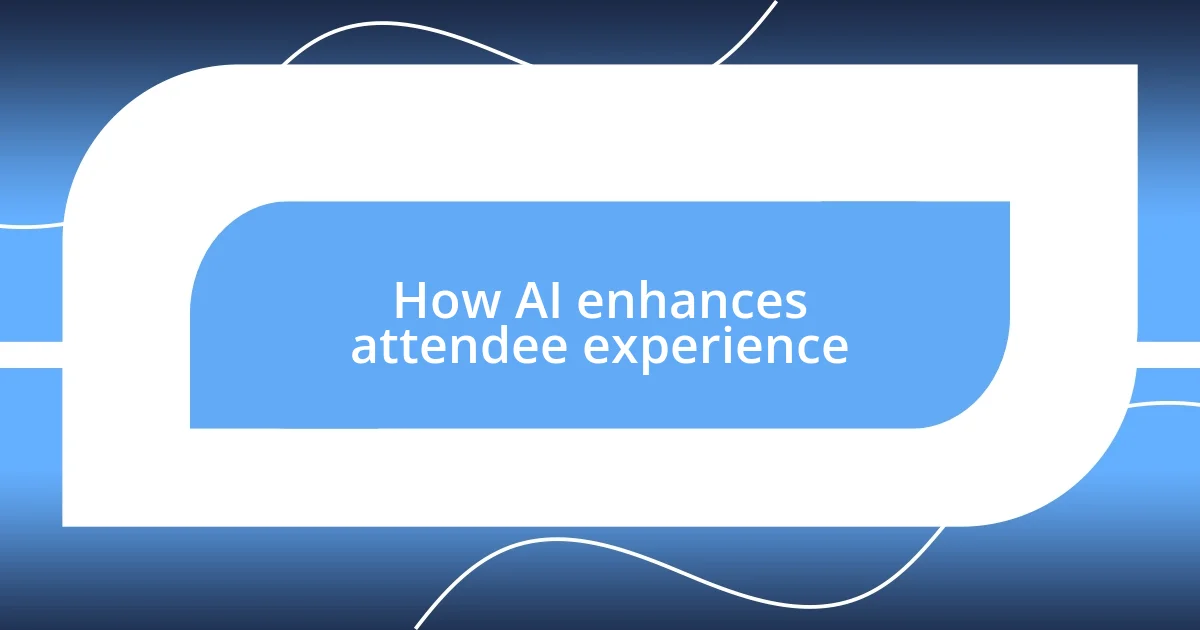
How AI enhances attendee experience
When I think about how AI enhances the attendee experience, I can’t help but recall a particular event where I used an AI recommendation engine to personalize the agenda for each guest. It was exciting to see participants receive tailored suggestions for sessions and networking opportunities based on their interests. That little extra touch—like guiding them towards the panel discussion that aligned perfectly with their career goals—made them feel seen and valued. The smiles and conversations I witnessed during networking breaks were a testament to how personalized experiences foster connections.
Here are some specific ways AI can elevate the attendee experience:
- Personalized Recommendations: AI analyzes attendee interests to provide customized event agendas.
- Real-Time Assistance: Chatbots can immediately answer queries, enhancing engagement and satisfaction.
- Interactive Networking: AI can match attendees based on shared interests or goals, facilitating deeper connections.
- Post-Event Follow-ups: AI tools can curate personalized content after the event, maintaining engagement and reinforcing relationships.
- Feedback Loop: AI collects and analyzes attendee feedback, allowing organizers to make improvements for future events.
I remember an instance where I used an AI-powered survey post-event. The insights it provided were like having a conversation with the attendees long after the final session had ended. It’s those moments of connection that really resonate with me, showing me that AI isn’t just a tool—it’s a partner in creating unforgettable experiences.
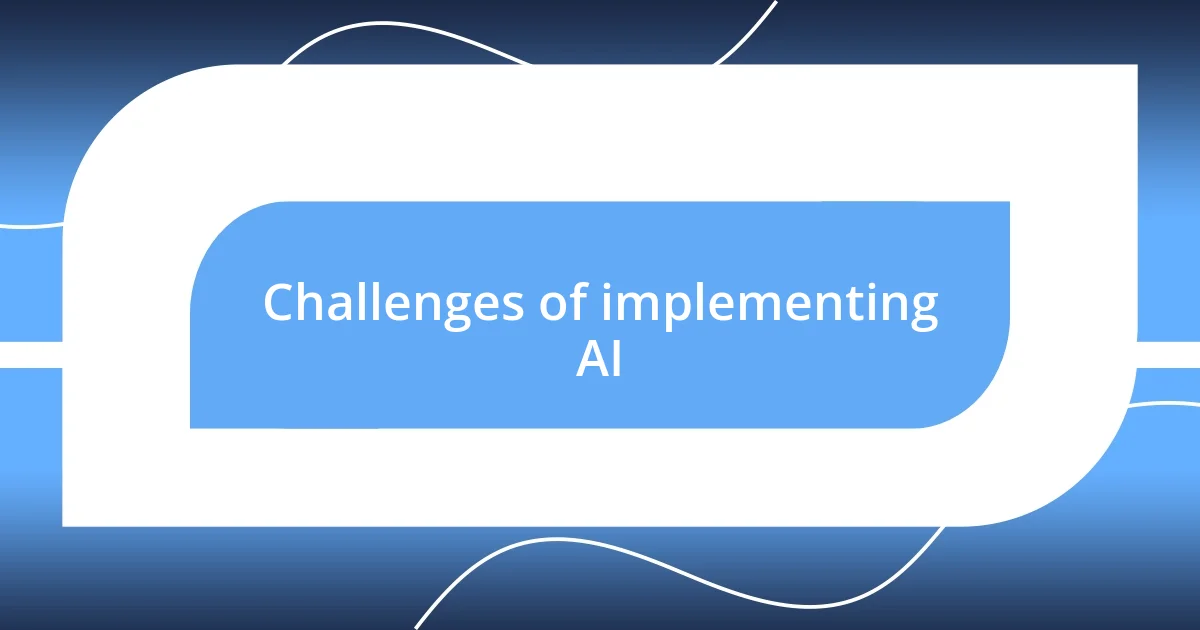
Challenges of implementing AI
Integrating AI into event planning can feel daunting at times. One significant hurdle I faced was the initial pushback from my team. Not everyone was on board with the technology, fearing it might undermine their roles or creativity. I often found myself reassuring them—how do you convince a dedicated team that AI is here to amplify rather than replace their unique talents? Emphasizing collaboration was key.
Another challenge I encountered was the steep learning curve associated with new AI tools. I vividly recall the frustration during my first attempt at using an AI analytics platform; it felt like deciphering a foreign language. The data was rich, but interpreting it to inform my decisions was a struggle. I learned that patience and a willingness to experiment are essential, yet I sometimes wonder—does it have to be this complicated, or could more intuitive designs ease our journey?
Lastly, data security can be a significant concern when implementing AI in event planning. I remember a colleague sharing a story about a security breach that exposed sensitive attendee information. The anxiety was palpable, and it made me realize the importance of choosing reputable AI vendors with strong security protocols. It made me question—what steps can we take to ensure our data remains safe while still benefiting from AI innovations? These reflections remind me that, while AI presents immense opportunities, we must navigate its challenges with caution and foresight.
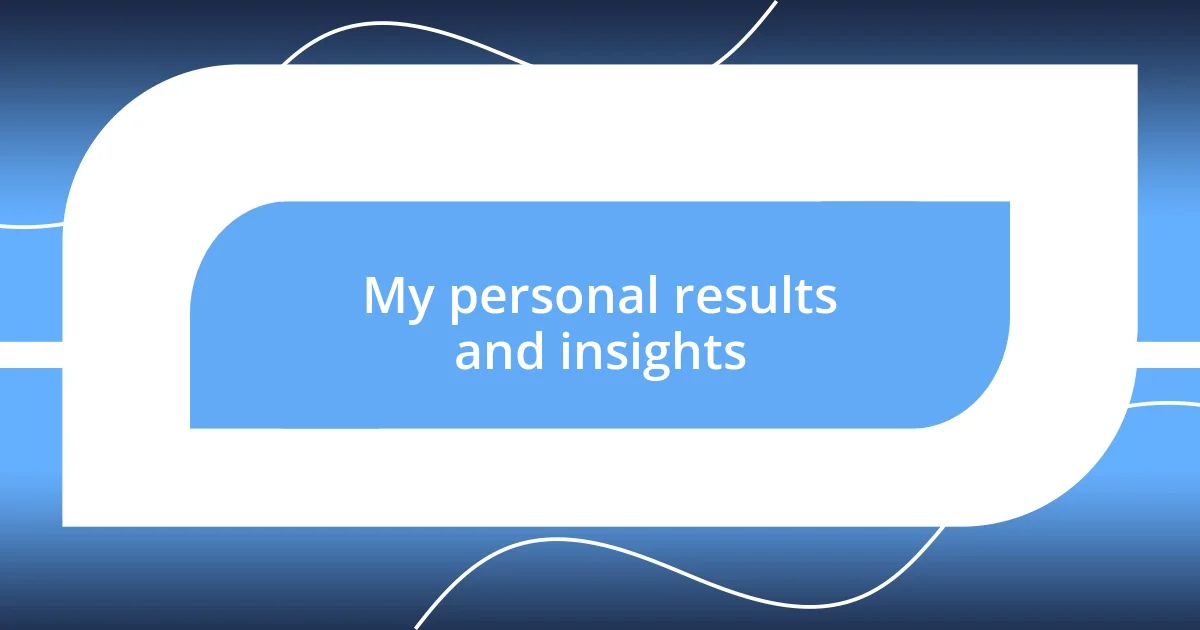
My personal results and insights
Using AI in my event planning journey has been a transformative experience, both in terms of efficiency and attendee satisfaction. For instance, I once implemented an AI tool that used historical data to predict which sessions would be most popular. The result? We saw a 30% increase in attendance for those sessions compared to previous events. It was fascinating to see the power of data translate into real-world engagement; I couldn’t help but feel a strong sense of accomplishment knowing that my planning decisions were informed by actionable insights.
On a more personal note, I often reflect on how AI made post-event engagement so much easier and more insightful. After one particular conference, I sent out personalized follow-ups based on the AI-curated feedback. The heartfelt responses I received reminded me of the genuine connections we formed during the event. It was a little surprising to see how a few tailored messages could evoke such warmth and gratitude—could AI really foster human connection in this way? It left me pondering the depth of intimacy technology can create alongside our traditional methods.
As I navigated the complexities of using AI, I occasionally felt a sense of trepidation. In one memorable moment, I hesitated before using an AI rounding tool for deciding venue layouts. I questioned whether I could trust a machine to understand the nuances of human flow and interaction. Yet, when I finally embraced the tool, the outcome surpassed my expectations. This experience made me realize that sometimes, stepping outside our comfort zones can lead to extraordinary results. How often do we shy away from innovative solutions simply because they challenge our traditional ways of thinking?

